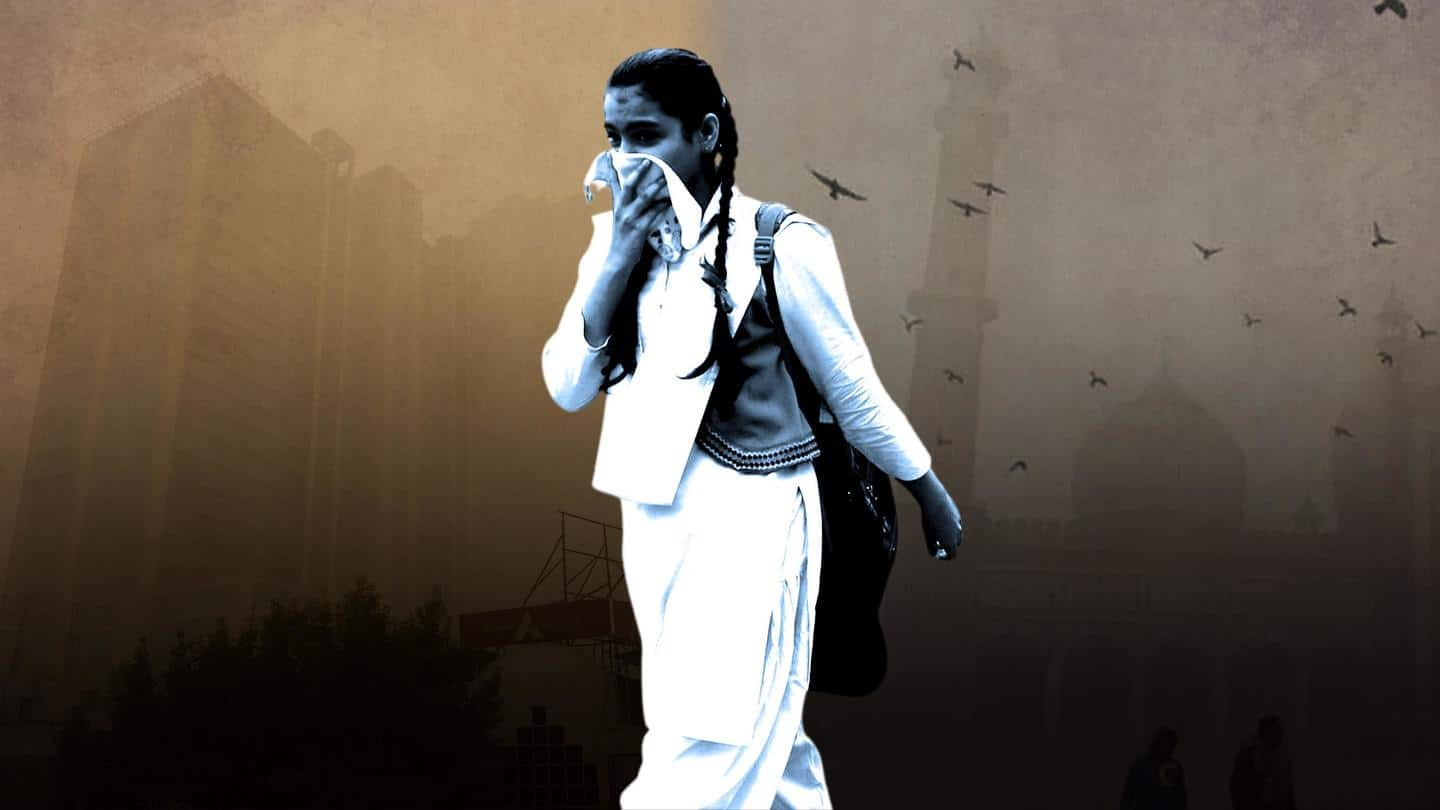
Smog to choke Delhi in 3 days, action plan enforced
What's the story
The National Capital Region (NCR) is likely to lose its breath under the grip of smog in the next three days.
Forecasting very poor air quality, the Commission for Air Quality Management in NCR and Adjoining Areas (CAQM) has enforced the second stage of Graded Response Action Plan (GRAP) in Delhi with immediate effect.
Saturday could see air quality index (AQI) crossing the 300-mark.
Context
Why does this story matter?
Ahead of Diwali, air quality index (AQI) reached a dangerous level at 317 on Wednesday in the national capital Delhi.
The AQI has remained poor for the past four days in the city.
Delhi's air quality possibly worsens due to stubble burning, festivities, and weather changes as it has been witnessing low air quality ahead of winter for the past few years.
Information
PM2.5 constitutes 42% of total PM10
The current AQI stands at the lower limit of the 'Poor' category, with particulate matter of size less than 2.5 micrometer (PM2.5) constituting 42% of total PM10.
Following the warning by the Indian Institute of Tropical Meteorology (IITM), Pune, the GRAP Stage 2 will follow a 12-point action plan overseen by the regional Pollution Control Boards and Delhi Pollution Control Committee (DPCC).
GRAP
What are the steps taken under GRAP Stage 2?
Following restrictive measures implemented in Stage 1, the second stage will see mechanical sweeping of roads along with water sprinklers and dust suppressants, at least every alternate day.
Regular inspection and strict enforcement of dust control measures will be carried out at designated construction and demolition (C&D) sites and landfills apart from enforcing use of anti-smog guns.
Stubble burning
Given adequate funds, machinery to Punjab: Bhupender Yadav
Union Environment Minister Bhupender Yadav held the Punjab government responsible for not containing stubble burning as farm fires are rising.
He said despite providing the state with adequate funds and farm machinery under Crop Residue Management (CRM), there hasn't been sufficient progress.
CAQM has prepared a plan for in-situ and ex-situ management of crop residue and asked the states to implement it.
Information
Centre rejected proposal for incentives last month
After the Centre rejected the proposal to give Rs. 2,500 per acre to farmers for not burning the crop residue last month, the government in Punjab and Delhi led by Aam Aadmi Party (AAP) failed to pay the incentives they promised to farmers.
Reduction
Haryana reported 55% less incidents than last year
Officials said although the number of stubble-burning incidents had reduced this year, it is gradually increasing again.
Nine districts of Punjab and four districts of Haryana were identified as the major contributors to stubble burning.
Haryana's chief secretary said the state saw a 55% fall in the number of stubble-burning incidents as compared to last year.
Punjab was asked to achieve similar levels.